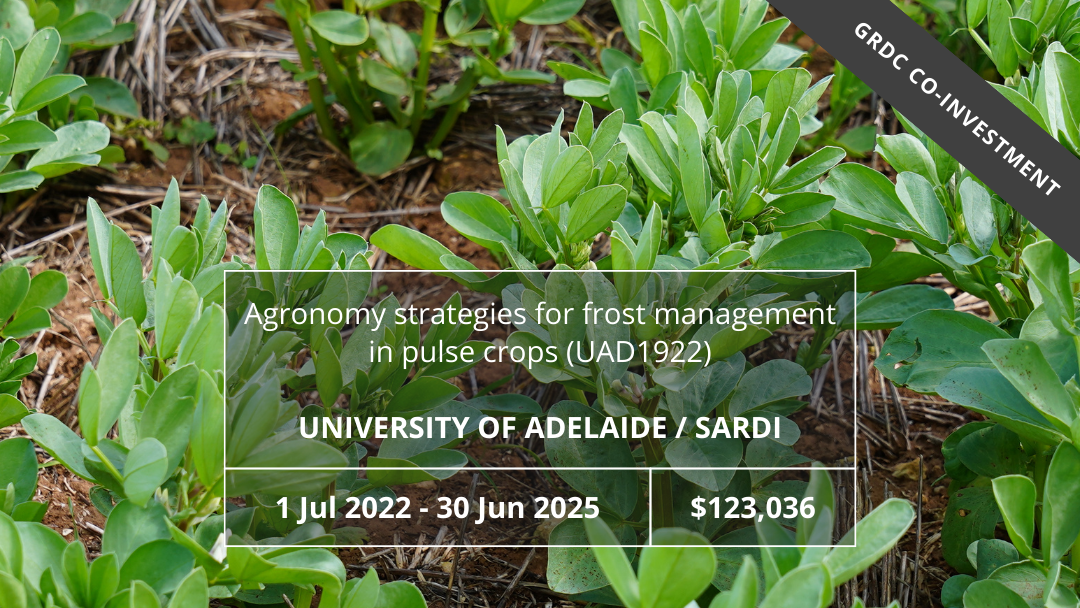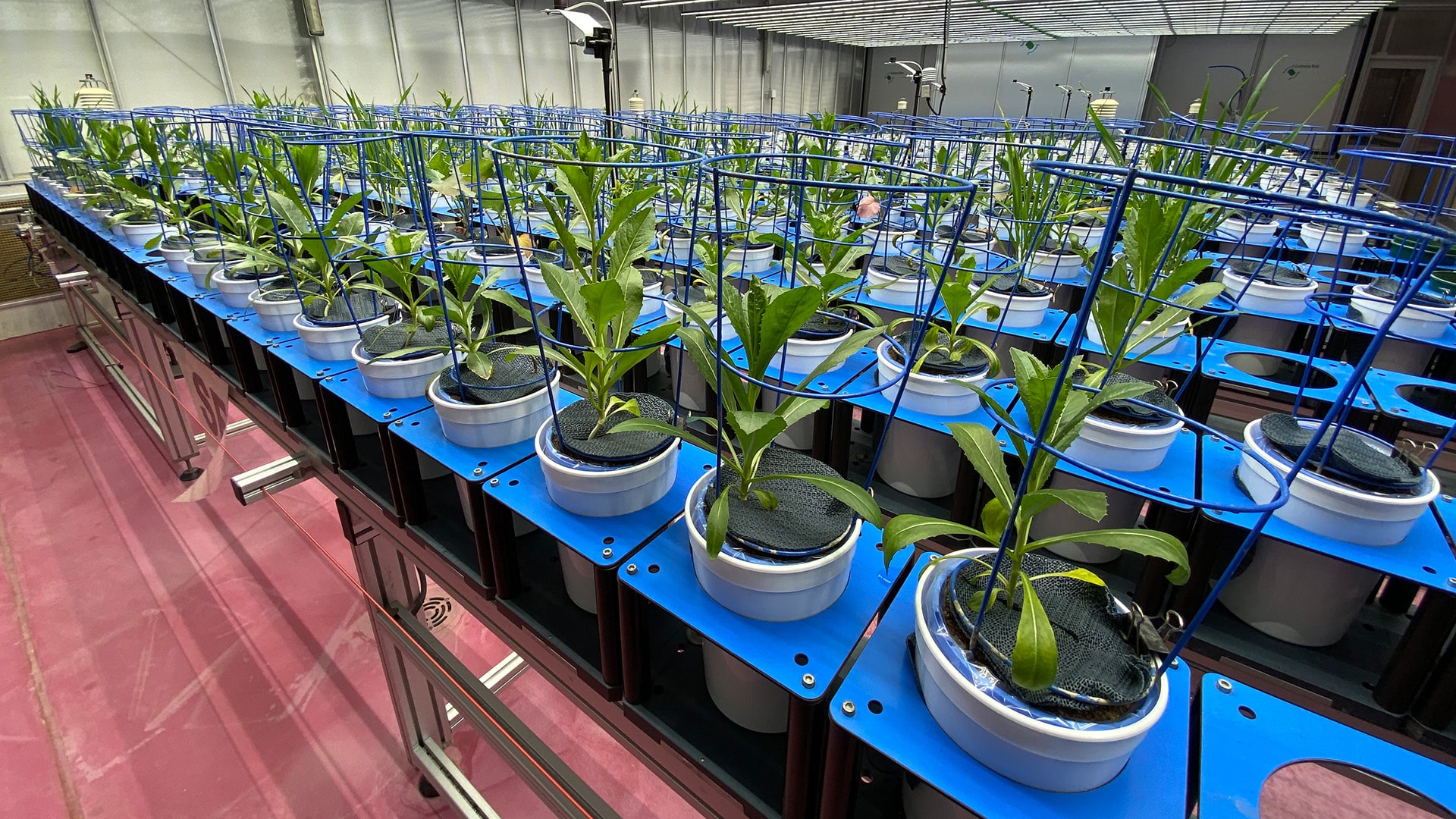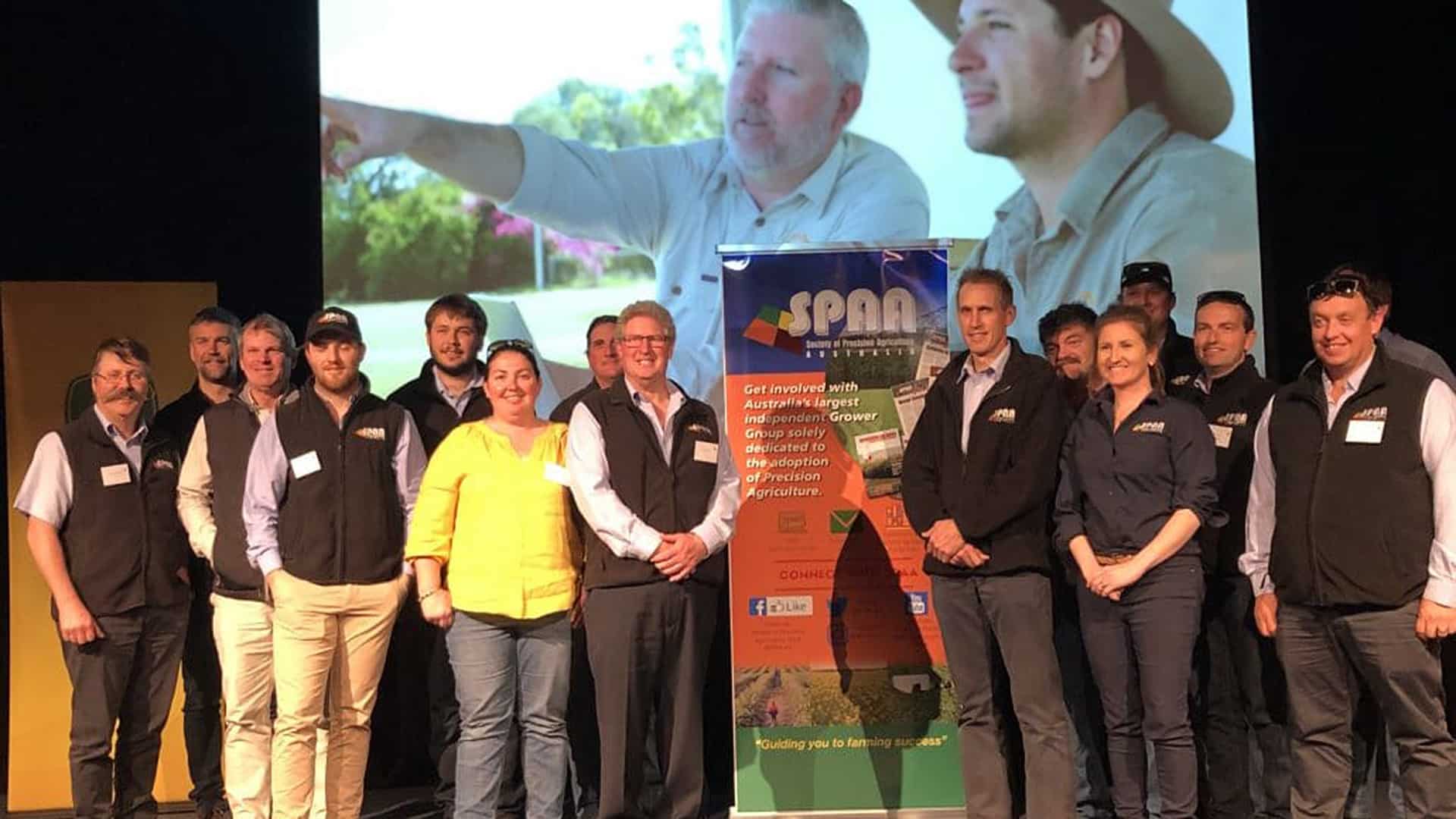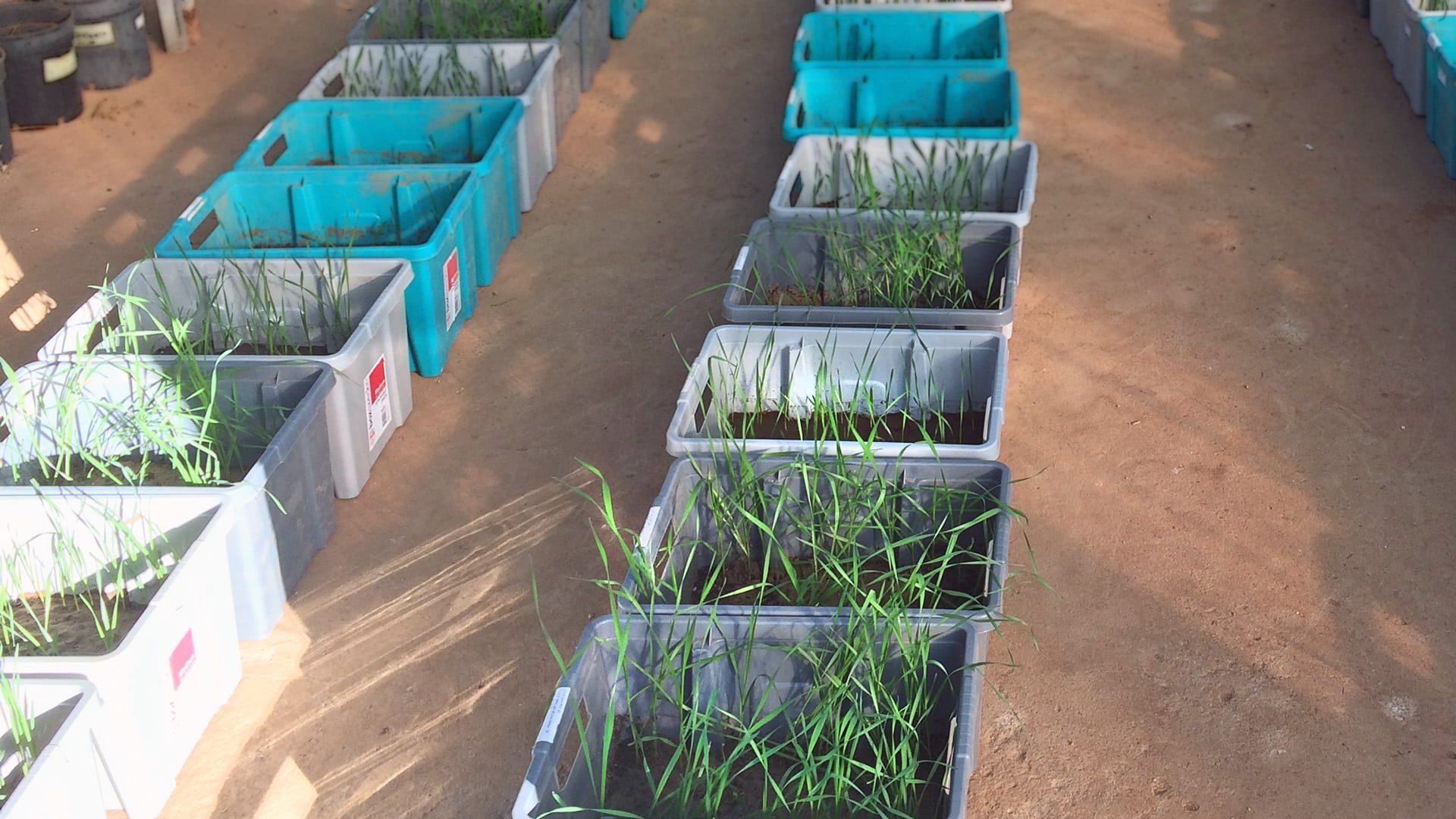START
FINISH

Summary
This project will be undertaken by SARDI researchers. Novel management strategies that either provide crop protection or avoidance during the critical reproductive stages, such as including mixed species cropping (intercropping) and delayed sowing, will be investigated to successfully grow pulse crops in frost prone environments.
Project Participants
Penny Roberts, SARDI
The research
This project will be undertaken by SARDI researchers. Novel management strategies that either provide crop protection or avoidance during the critical reproductive stages, such as including mixed species cropping (intercropping) and delayed sowing, will be investigated to successfully grow pulse crops in frost prone environments.
Funding
$123,036
This project is a co-investment, with the Grains Research and Development Corporation providing 50% of the total funding.
More information
Penny Roberts
T: 0436 678 982
E: [email protected]



